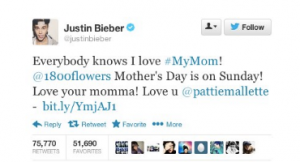This series presents a framework that describes the roles and responsibilities of marketing operations leaders. This fourth and final part discusses MOps leaders as scientists. Earlier editions described their roles as Modernizers, Orchestrators, and Psychologists.
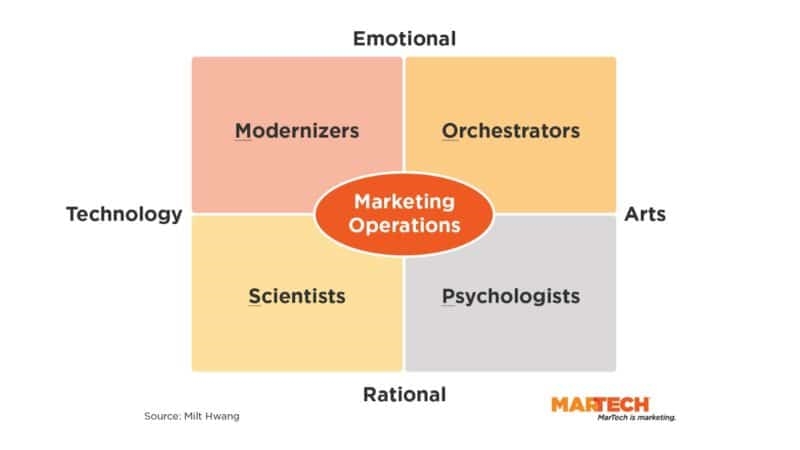
The path to knowledge employs the scientific method. Practitioners first develop a hypothesis, which is an assumption or potential explanation for an observation. They then test the hypothesis by conducting experiments. An idea in marketing is analogous to a hypothesis. The execution — such as a campaign based on the idea — and measurement of results can be compared to an experiment.
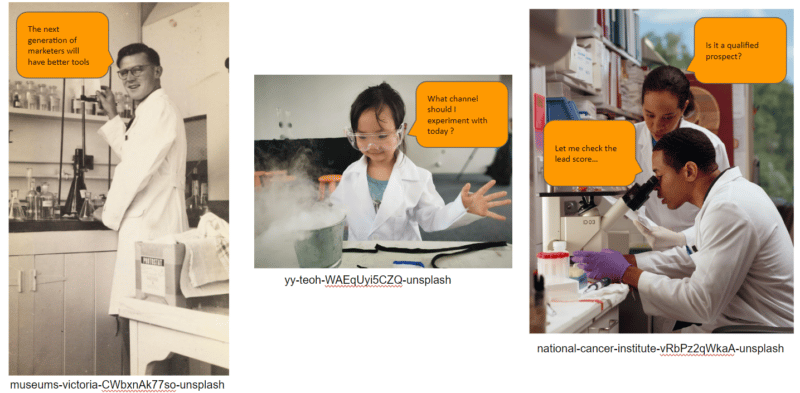
Incorporating a scientific-discovery mindset is integral to the success of marketing teams and professionals. Evaluating and implementing new martech is now a core responsibility of marketing and marketing operations professionals (see part 1). The hypothesis implicit in the adoption is that the new technology will enhance outcomes. Using the marketing software, and measuring the results, is the experiment.
For example, a cornerstone value proposition of marketing automation platforms is the ability to conduct email marketing at scale. Not only can using the platform determine whether it can achieve that goal, but it’s also possible to conduct experiments within experiments. A/B testing was initially implemented by creating and deploying two separate versions of the email creative to small segments of the database. This is a simple experiment to determine which creative performs better.
Every element of every digital campaign and underlying tactic is an opportunity for an experiment. The results (which performed “better”) are measured from recipient responses. Those responses may include key performance indicators (KPIs) ranging from the foundational — opens, click-throughs, form-completions, conversion rates — to campaign and business outcomes, e.g., leads, opportunities and sales.
Holistic testing and iterative learning
Many marketers consider A/B testing a starting point. But linking multiple tactics and experiments, and using an iterative approach, can turbocharge our marketing.
We ”…want to go a little bit further than (A/B testing) and do what I call ‘holistic testing,’ which is very much scientific testing,” Kath Pay, CEO of Holistic Email Marketing, said at a recent MarTech conference.
“Once you get a winning result, and this will be based upon time, as opposed to just the volume of emails (in a single campaign), then you’re going to update the hypothesis and replace the losing stream with a new stream that’s supporting your next hypothesis,” Pay explained.
Learning is an iterative process whether the A/B or holistic approach is employed. Observations yield a hypothesis. A test is conceived and conducted, followed by a review of results and learnings applied to the next iterative learning cycle.
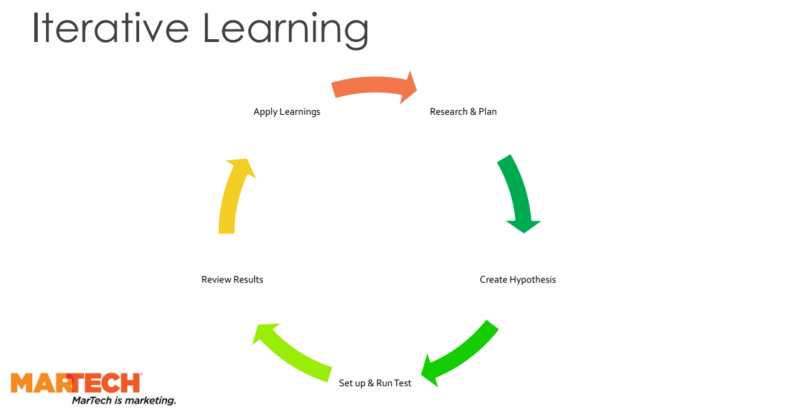
Evaluate results, beware automation
Every experiment yields more data to be analyzed. Successful marketers are disciplined to pause and evaluate the outcomes of experiments before moving on to the next.
Often, the data requires us to revise our hypothesis before coming up with the next experiment. Just because we can automate the next step doesn’t mean we should.
Scientists impact business results
Marketing leaders and marketing operations specialists are often tasked with building the models that report on the outcomes of marketing programs.
Attribution models have evolved significantly beyond “last touch” conversion measurements for most organizations. Applying scientific rigor to attributions requires testing multiple hypotheses to determine the outcome.
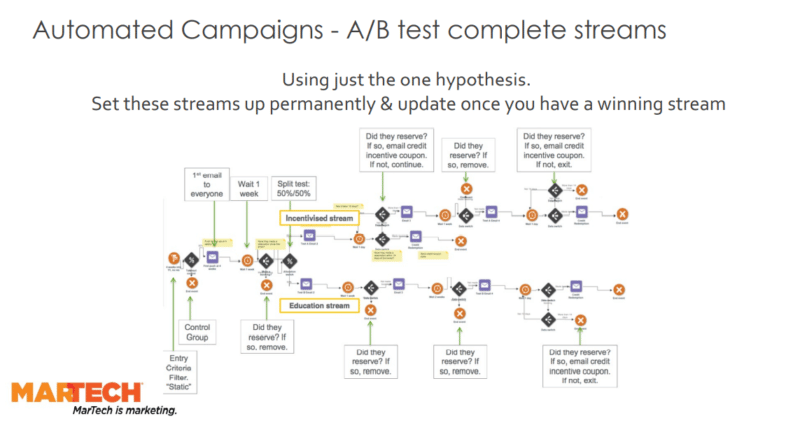
Some experiments fail
Failure is baked into the scientific method. If every idea is a hypothesis and every campaign an experiment, then it’s inevitable that some hypotheses be disproved. Failed experiments provide direction for the next hypothesis and the next experiment.
“In the end, the analytics won’t tell you the next big creative idea, it will tell you when the next big creative idea is working,” according to Elea Feit, Assistant Professor, Marketing at Drexel University.
Conclusion
Harnessing insights from data created by user interactions is the key to improving customer experience and boosting conversions. Adopting a scientific approach — developing and testing hypotheses — is key to improving experiences and outcomes.
The post MOps leaders as scientists: Embracing the scientific method appeared first on MarTech.
(13)
Report Post

